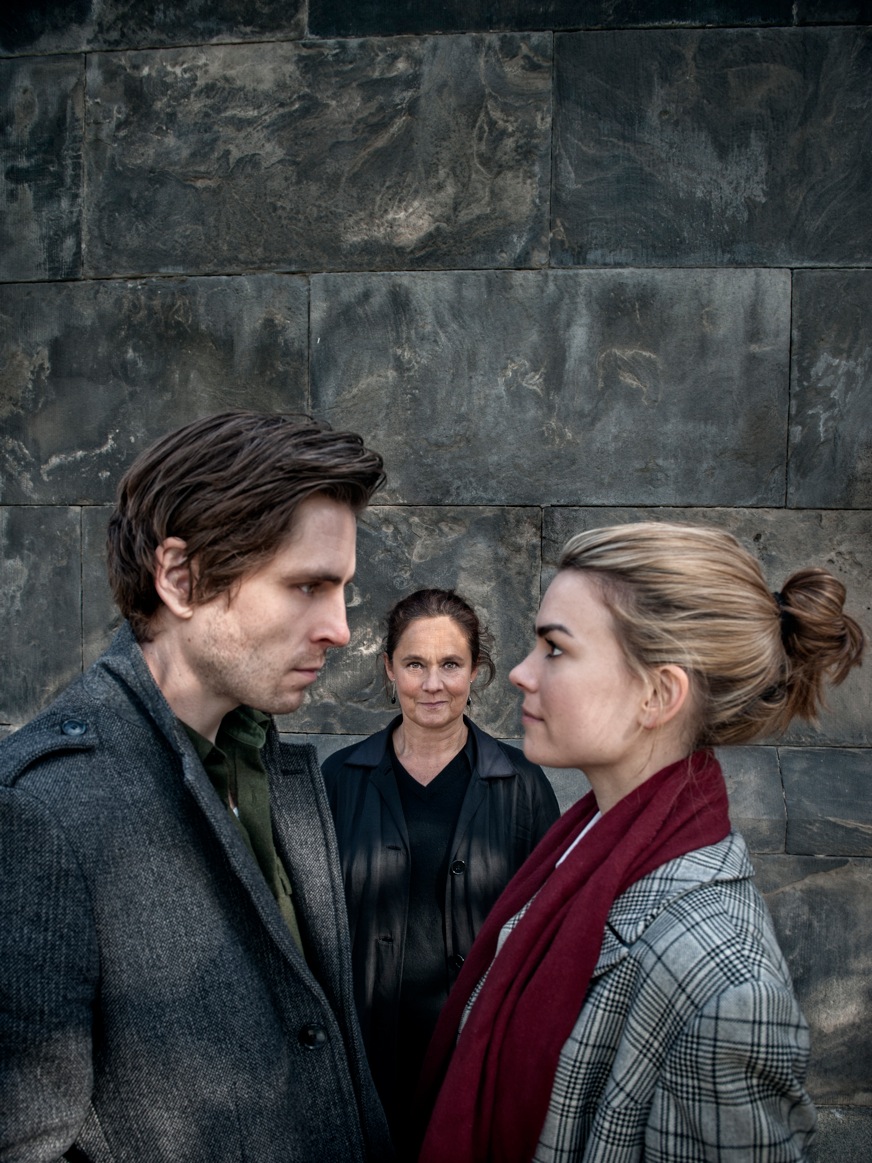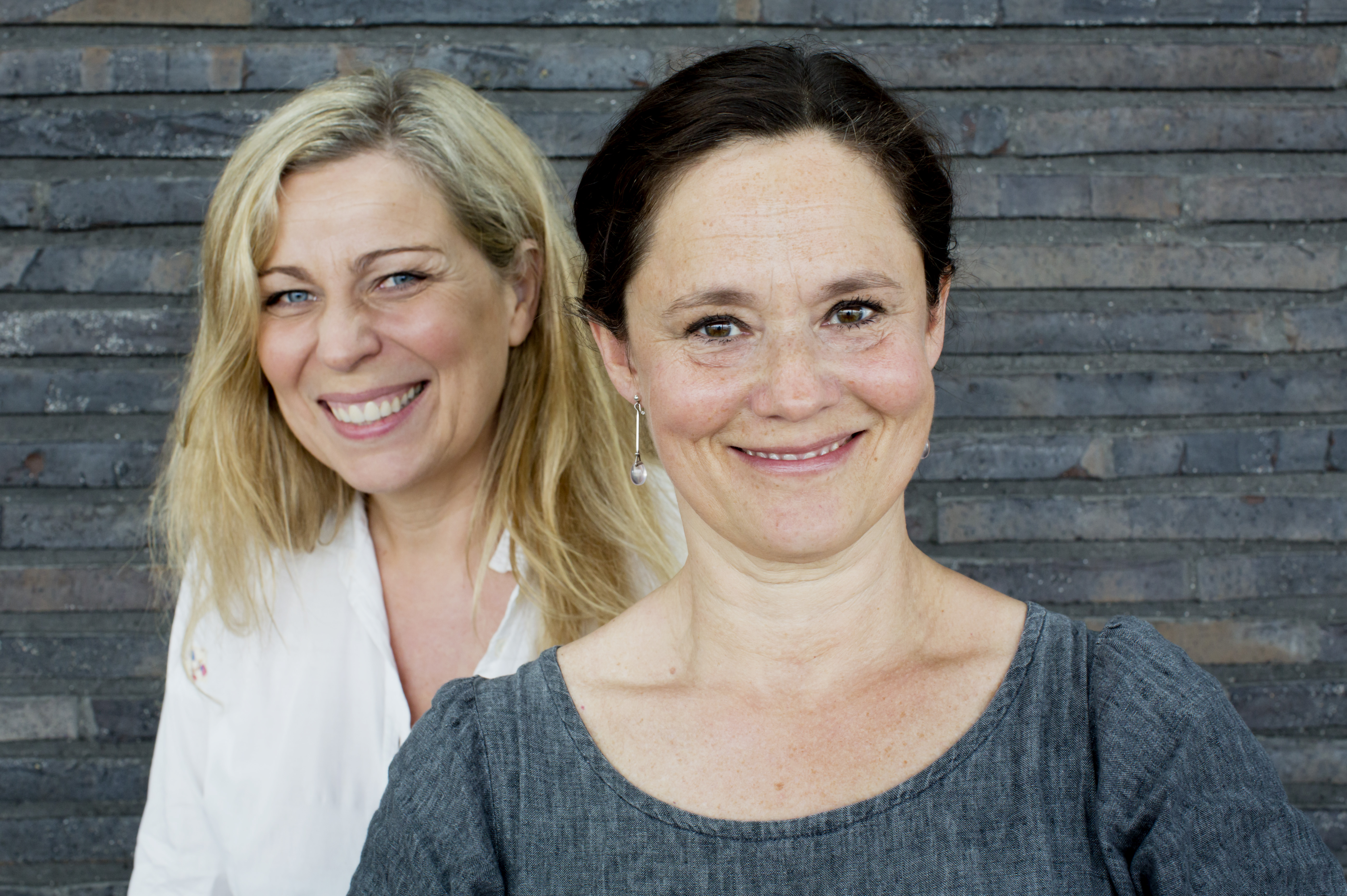“Right now I’m looking forward to some acting,” smiles Pernilla August.
“Directing is an intense experience. Two years of your life are spoken for. And this one was particularly tough.”
It’s December, a few days before Christmas 2015, and the finished print of A Serious Game (Den allvarsamma leken) is all but ready to see the world. August (the director) shot the final scenes in August (the month), after which editing and other aspects of post-production commenced. Soon, the film will have its world premiere in Berlin.
“It’s a newborn, still wet. I’m not sure if I’m ready to talk about it yet,” she says, again smiling. And then she starts to talk.
“I was approached by Patrik Andersson and Lone Scherfig. He was producing and she wrote the script. It was nice of them to think of me. Lone is also quite an excellent director in her own right.”
The background involves logistics and inspired thinking. Scherfig (Italian for Beginners, An Education) was tied up with other directorial duties, but most willingly wrote a script. The ensuing search for a fitting director was almost non-existent. Fresh from her triumphs with Beyond (Svinalängorna, 2010), Pernilla August felt like simply the best person in this day and age to give this story a life.
“I started by re-reading the book for the first time since… probably my teenage years. I liked what I read. ‘Turn-of-the-century’ plus ‘love story’ equals ‘yes, this will be good!’, and also a challenge, in trying to turn the period into something relevant for our own time. Can we relate to what’s happening here? Turning these things into an ‘us’ and into a ‘now’. Creating fresh emotions. I found these things most attractive.”
Hjalmar Söderberg’s The Serious Game (Den allvarsamma leken) was published in 1912. Both the novel and the theatre play Gertrud (1907) draw from the author’s own extramarital affair with one Maria von Platen. Book and play have been adapted for the screen over the years, Gertrud in Denmark through Carl Th. Dreyer’s 1964 classic and The Serious Game in 1945 by Söderberg’s son-in-law Rune Carlsten, starring Viveca Lindfors, and again in 1977, directed by Anja Breien. Söderberg’s work seems to age quite well, if at all.
“It surely has to do with our ability to identify with the emotional drama,” observes August. “There are many applicable contemporary aspects. Granted, some conditions are notably different, such as the position of women in the early 1900’s, not being allowed to vote and such. But Lydia is very much a woman in the forefront; she was probably born some one hundred years to soon… So there is that. But when you boil it down, it’s a story of choices and, equally important, non-choices. Arvid, it hit me repeatedly, is quite passive in his choices. It takes him a while to get a grip on himself.”
The story is an oft-told one. A boy, Arvid, meets a girl, Lydia. Sparks fly. Due to meagre financial conditions, however, the couple cannot build a joint future. Lydia marries an older, well-todo man and Arvid ties matrimonial bonds with a woman of a family of means. Through a chance reunion, a torrid affair begins. Apart from deceived spouses, children are now also involved.
It pretty much sounds like a bawdy bodice-ripper. “A bit corny, yes. But love is sometimes corny, isn’t it?”
While one may find some rather splendid period films in Pernilla August’s CV, such as Ingmar Bergman’s Fanny and Alexander (1982) and (ex-husband) Bille August’s The Best Intentions (Den goda viljan, 1992), quite a different visual approach is found in her own depiction of the era. Squalor rather than splendour seems to be a keyword here.
“Yes indeed! We worked damned hard on it. Lightning and electricity was different then, much more dim, and we have tried to be in line with this. I wanted to make the audience really feel the feel and smell the smells of the period. We even consulted an excellent ethnologist, Richard Tellström from the University of Örebro, as our advisor on people’s ways and habits back then. And Anna Asp has created some very inspired sets, as usual.”
Production designer Asp, whose work on Fanny and Alexander won her an Oscar, also perfectly captured the drab look of the working class 1970’s in Beyond, has become an important part of August’s regular team, as has expert editor Åsa Mossberg and Danish cameraman Erik Molberg Hansen, whose handheld style/non-style provides a distinct look for both Beyond and A Serious Game.
“It may well be a radical way to shoot a period piece. Certainly, neither Ingmar nor Bille would ever use a handheld camera! I, on the other hand, love the grittiness of this approach. It’s the way in which I tell stories.”
She hastens to credit the considerable inspiration these and other filmmakers – Jan Troell, Bo Widerberg and Per Fly also get due praise – have provided her ”directorial backbone”. Nevertheless, Pernilla August has surely arrived as a personal filmmaker in her own right these days. She may have worked with some of the Scandinavian greats, but her vision is her own and not theirs.
But currently, Pernilla August, who has also had the time both to conceptualize and direct the successful Danish television series The Legacy, is looking forward to some acting.
“The notion of just having to take care of one simple slice of a production rather than carry the whole thing on your shoulders. As much as I love directing, I will appreciate doing a part for someone else. It will be like a pleasant walk in the park.”
She would also like to take a look at some films by other people.
“All this work has left me in a cocoon-like state as regards the outside world, so that would be very nice. I even managed to miss the new Star Wars film, even though they invited me to the premiere. Which reminds me,” she smiles with feigned resentment. “I still haven’t received my usual Christmas card from George Lucas this year. And I’m still waiting for my Star Wars comeback – as a hologram, of course!”
Previously published in Swedish Film # 1 2016


